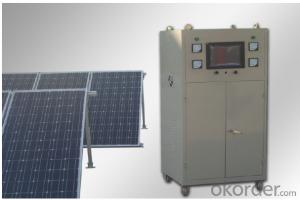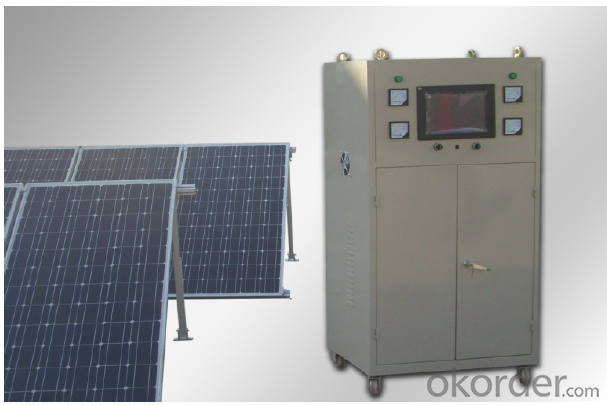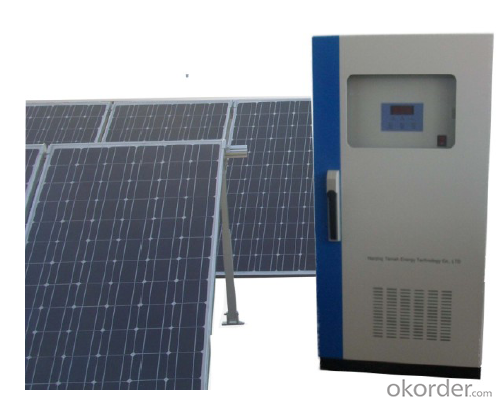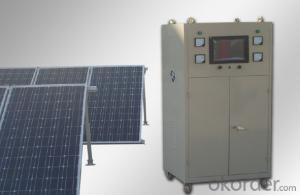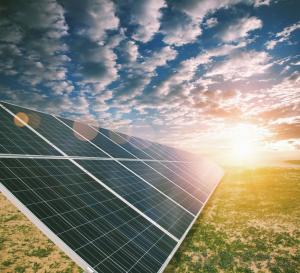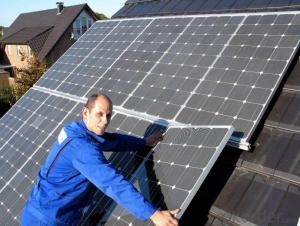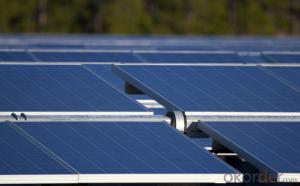Tesla Solar Energy Systems - CNBM-K8 5kW Solar Home System with Low Price
- Loading Port:
- China main port
- Payment Terms:
- TT OR LC
- Min Order Qty:
- 1 watt
- Supply Capability:
- 100000000 watt/month
OKorder Service Pledge
OKorder Financial Service
You Might Also Like
Specification
Description:
CNBM Solar is a world top leading solar manufacturer . With China government backup ,CNBM has set up
many warehouses in the world
The capacity of CNBMSolar is reach to 1GW, andmake sure each year our shipment capacity is more
Than 700-800MWs, at the same time, wehave set up the largest solar power station with our partner
in Ukraine.
CNBM is a Quality + Service orientedcompany with“Excellence at Each Step” approach, composed of
the finest components from TUV andIEC-certified partners around the world, CNBM modules consistently
undergo a variety of trials at thecompany’s Test & Development Centre, ensuring peak performance
capabilities. The company iscommitted to develop and provide the world with clean and renewable energy
to ease the energy shortages as wellas human kind’s impact on the environment.
Data:
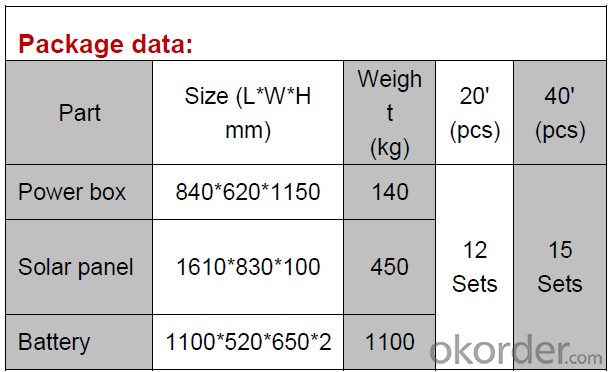
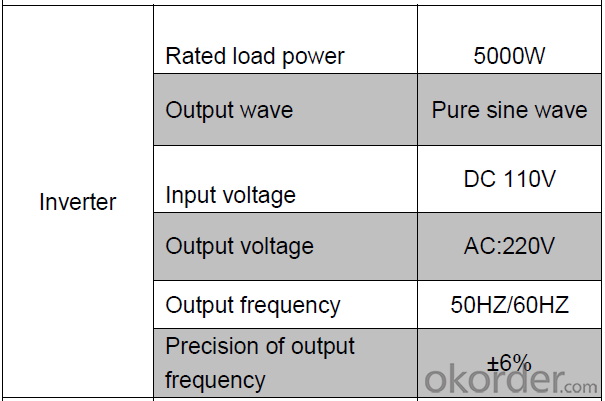
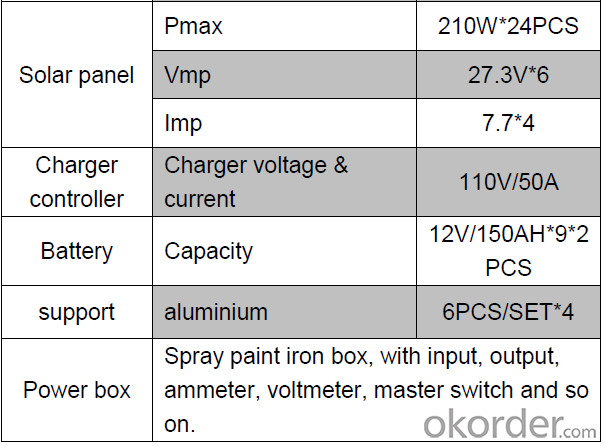
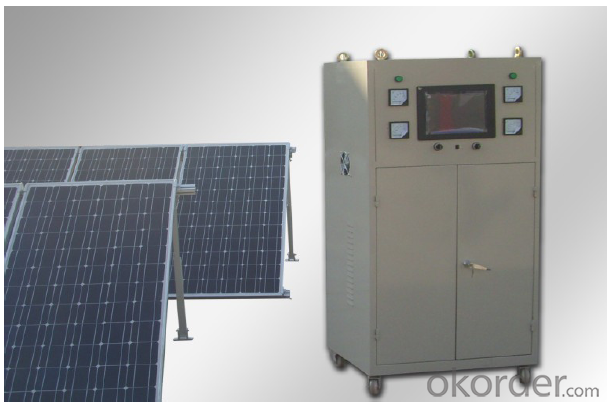
FAQ:Could you introduce more about CNBM ?
CNBM is abbreviation of China National Building Material Corp .It is a state owned company . One of Global Fortune 500 .
- Q: Can solar energy systems be used for powering electric fences?
- Yes, solar energy systems can indeed be used for powering electric fences. Solar panels can generate electricity from sunlight, which can then be stored in batteries for later use. This stored energy can be utilized to power electric fences, providing a reliable and environmentally friendly source of power for livestock or perimeter security.
- Q: What is the role of solar trackers in solar energy systems?
- The role of solar trackers in solar energy systems is to optimize the efficiency of solar panels by continuously adjusting their orientation to track the movement of the sun throughout the day. This allows the panels to capture the maximum amount of sunlight and generate more electricity, increasing the overall energy output of the system.
- Q: How do solar energy systems impact local wildlife?
- Solar energy systems can have both positive and negative impacts on local wildlife. On the positive side, these systems can provide habitat for certain species, such as birds or pollinators, by creating shade and shelter. Additionally, solar panel arrays can be designed to minimize ground disturbance and preserve existing vegetation, benefiting local flora and fauna. However, there are also potential negative effects, such as the risk of bird collisions with solar panels or the displacement of certain species due to changes in habitat. Proper planning, including strategic panel placement and wildlife-friendly landscaping, can help mitigate these impacts and ensure coexistence between solar energy systems and local wildlife.
- Q: How do solar energy systems contribute to reducing peak demand on the electrical grid?
- Solar energy systems contribute to reducing peak demand on the electrical grid in several ways. Firstly, during sunny days, these systems generate electricity from the sun, which can be directly used by homes and businesses, reducing their reliance on the grid. This decreases the overall demand on the grid during peak times. Additionally, excess solar energy generated during the day can be stored in batteries or fed back into the grid, providing a supplemental power source during peak demand periods. This helps to balance the load on the grid and reduces strain on conventional power plants, leading to a more stable and reliable electrical grid.
- Q: How does a solar panel generate electricity?
- A solar panel generates electricity through the photovoltaic effect, where sunlight is converted into electrical energy. This process occurs when the photons in sunlight strike the solar cells within the panel, causing the electrons in the cells to be excited and flow as an electric current.
- Q: What is the role of solar energy systems in reducing greenhouse gas emissions?
- Solar energy systems play a crucial role in reducing greenhouse gas emissions by providing clean, renewable energy without emitting any harmful pollutants. By harnessing the power of the sun, these systems generate electricity, heat, and hot water, reducing the reliance on fossil fuels and traditional energy sources that contribute to greenhouse gas emissions. The use of solar energy helps to decrease the carbon footprint and combat climate change while promoting a sustainable and environmentally friendly energy transition.
- Q: What is the role of energy management systems in a solar energy system?
- Efficiently managing and optimizing solar energy generation, storage, and consumption, energy management systems are crucial in solar energy systems. These systems monitor and control various components, ensuring efficient utilization of energy produced by solar panels. A significant function of energy management systems is to regulate electricity flow between solar panels, energy storage systems, and connected loads. This involves constant monitoring of energy production and consumption levels, allowing adjustments for maximum efficiency. Real-time data and analytics on solar energy system performance are provided by energy management systems. This includes information on energy generation, consumption patterns, and overall system efficiency. By analyzing this data, users can identify areas for improvement and optimize system performance. Remote monitoring and control of solar energy systems are made possible by energy management systems. This allows users to conveniently monitor energy production, consumption, and storage levels from anywhere. It also enables users to remotely adjust settings or control loads during peak energy consumption periods. Furthermore, energy management systems prioritize the use of self-generated energy, maximizing the utilization of solar energy. Excess energy produced by solar panels can be directed towards charging the energy storage system instead of exporting it to the grid. This ensures efficient storage and utilization of solar energy, reducing reliance on the grid and maximizing the benefits. In conclusion, energy management systems are essential components in solar energy systems. They enhance overall performance and efficiency by efficiently managing electricity flow, providing real-time data, and enabling remote monitoring and control. By optimizing energy generation, storage, and consumption, these systems maximize the benefits of solar energy.
- Q: Can I install solar panels myself?
- Yes, it is possible to install solar panels yourself, but it requires a certain level of expertise and knowledge in electrical work and roofing. It is recommended to hire a professional installer who is trained and experienced in handling solar panel installations to ensure safety and optimal performance.
- Q: Can solar energy systems be used for powering electric vehicle charging pads?
- Yes, solar energy systems can be used to power electric vehicle charging pads. Solar panels can be installed near the charging pads to capture sunlight and convert it into electricity, which can then be used to charge electric vehicles. This allows for sustainable and renewable energy sources to be utilized for electric vehicle charging.
- Q: Can a solar energy system be installed in areas with heavy snowfall?
- Yes, a solar energy system can be installed in areas with heavy snowfall. While heavy snowfall can affect the efficiency of solar panels, proper design and installation can ensure their effectiveness even in snowy conditions. Here are a few considerations: 1. Tilt and angle: Solar panels are typically installed at an angle to maximize exposure to sunlight. In areas with heavy snowfall, panels can be tilted at a steeper angle, allowing the snow to slide off more easily. 2. Snow clearing: Regular snow clearing can help maintain the performance of solar panels. This can be done manually or through automated systems that use brushes or heating elements to melt the snow. 3. Orientation: Orienting the solar panels towards the south or where they receive maximum sunlight can help mitigate the impact of heavy snowfall. This ensures that when the snow melts, the panels can quickly resume their normal operation. 4. Adequate spacing: Providing sufficient spacing between solar panels can prevent snow accumulation from one panel affecting the entire system. This allows for continued energy production even if some panels are temporarily covered in snow. 5. System monitoring: Installing a monitoring system can help identify any issues with snow accumulation or reduced energy production. This allows for timely intervention and maintenance to ensure optimum performance. While heavy snowfall may temporarily reduce energy production, a well-designed solar energy system can still be a viable option in areas with these weather conditions. It is important to consult with experienced solar installers who can design and install a system that can withstand and adapt to heavy snowfall.
Send your message to us
Tesla Solar Energy Systems - CNBM-K8 5kW Solar Home System with Low Price
- Loading Port:
- China main port
- Payment Terms:
- TT OR LC
- Min Order Qty:
- 1 watt
- Supply Capability:
- 100000000 watt/month
OKorder Service Pledge
OKorder Financial Service
Similar products
Hot products
Hot Searches
Related keywords
